Let’s imagine that you have put together a perfect resume (cv) and a killer cover letter ,(a job interview) and these two documents have impressed your potential employer so much that he has decided to invite you to a job interview .
Maybe it’s time to celebrate? Nothing of the kind!
Don’t be overjoyed, but concentrate, because you have the most important part of your journey to your dream job ahead of you – performing brilliantly during the job interview and winning it.
There are ten important rules that can go a long way in helping you excel in a job interview. Here are those rules:

İçindekiler
Job Interview: How to Win It
1. Set goals for the interview
Many things in life that we do rest on some goals that we have set for ourselves. The more precisely we define our goals, the more focused and consistent we are in achieving them.
It’s the same with a job interview. If you don’t set goals before you walk into your employer’s office and just say to yourself, “Wait until I go and talk, and I hope they approve me,” you risk ruining all your hard work on creating a resume (cv) and cover letter .
Instead, take a moment to think about what goals you want to achieve in meeting your potential employer. Only on the basis of the goals you set for yourself can you build a strategy for your presentation at an interview . But without goals there can be no strategy!
Here are some possible goals you could set for yourself:
- To make a favorable first impression
- Get an insight into the employer as well as who will make the hiring decision
- Find a common topic of conversation
- To learn the name of the person(s) you would be working for
- Find out if the job and the employer meet your needs
- Find out what the employer is looking for and present your abilities as a solution to their problems
- Ask meaningful questions that reveal your genuine interest in the employer and the position
- To demonstrate that you are an equal party in the negotiations
- To minimize potential negative impressions
Depending on the goals you choose, you will be able to carefully prepare your presentation during the interview. But if you don’t have even one goal, then you will most likely improvise, but this is not for everyone and is not always the best solution.
So, set goals!

2. Prepare yourself
A huge number of job applicants fail to prepare well for the interview ahead of them, and then leave a lackluster or downright bad impression of themselves in the eyes of the interviewer. If you don’t want to be like them, definitely take the time to prepare.
Preparation for the interview includes three stages:
1. Gathering information about the employer
Before you meet with a representative of the employing company, learn more about them. Gather any information you can find, for example from:
- The company website of the employer
- Internet forums and blogs
- The press – articles in newspapers and magazines
- Acquaintances and friends
- Former and current employees of the company
- Any other information channels
The information you receive will be invaluable as it will give you insight into:
- What are the company’s products and services
- What is its history, present and foreseeable future
- What is the company’s reputation?
- Where is the company in its industry?
- Who are its most serious competitors?
- What are the main problems and challenges in the company’s industry
2. Gathering information about the vacant position
Surely, you already have some idea of the position you are applying for, otherwise you would hardly submit a CV and cover letter (or?)
However, job postings don’t always have everything written in detail and comprehensively, so it’s important to prepare yourself with as much information as possible about the position before entering the interview where you will be fighting for it.
The main channels for information about the position, apart from the ad itself, are:
- Specialized, branch publications
- Acquaintances and friends
- Former and current employees of the company that you know or your acquaintances and friends know
- Job characteristics that you can also find on the Internet. Be careful with this channel – it can be useful, but if the job descriptions are from the “ready-made” ones – they won’t do you much good.
- Any other information channels
The information you receive will be invaluable as it will give you insight into:
- What are the day-to-day activities and tasks inherent in the position
- What are the non-standard, unusual difficulties and challenges of the position
- What tasks does the department (unit) in which you will work work on and what are the main problems it faces
- Who will be your boss?
- Who will be your colleagues?
It is very possible that you will not be able to collect some information about both the employer and the position if, for example, you are applying to a small and unknown company or if you do not have much of a network of contacts.
Do not despair – as much as possible! And what little information you have can be useful. But if you don’t take the time to prepare – you won’t have anything!
3. Preparation for your personal presentation during the interview
This is the third stage of your interview preparation, after preparing with information about the employer (1) and the position (2).
In practical terms, this means thinking carefully about how to achieve your goals (rule #1 above).
If your goal is to quickly make a positive impression, think about what you’re going to say as soon as you enter the chat room.
If your goal is to gather more information about the employer and the position, consider exactly which questions you will ask, when, and in what order.
If your goal is to cover up some aspects of your professional life to minimize the negative impressions they may create – decide exactly how you will do this, as well as what backup plan to implement if you do have to give an explanation (for example, to answer the question why you were fired in a previous company).
You see for yourself that preparation is unthinkable without proper goal setting. Therefore, do not look at goal setting as something abstract or useless – just with goals you can also make targeted preparation that will facilitate your conversation during the interview.

3. Make a great first impression
Many communication experts say that the first 30 or 60 seconds are crucial in forming an opinion of who the person is against us.
If that’s true (and my personal experience confirms it as well), then you’re on a mission to score your first small victory in the job interview before it even begins. The task is to create a great first impression in just 60, and preferably 30 seconds.
Don’t worry – it’s actually easy. See what you need to do:
1. Dress appropriately
Yes, I know it may sound basic to you, but I have reasons for making this point, because even today the percentage of people who are inappropriately dressed for an interview is too high.
Remember the rule that you should be dressed the way you think the interviewer will be dressed or one step higher than him .
Or, if you’re interviewing at an office of a well-known company and you know you’ll be meeting business people, a suit, shirt and tie is a must if you’re a man, and a business, clean business suit if you’re a woman.
However, if you are applying to be a chef in a fast food restaurant, trousers and a shirt would be sufficient in the most pretentious case, and if you are a woman, looser, sporty-chic clothes, why not in a light color, if the season and your wardrobe allow it (light is related to cleanliness and hygiene, which is also needed in cooking).
We will talk specifically about clothing and appearance in another material, but the principle is important – dress like your interlocutor or one step “higher” than him.
2. Be punctual for the interview
If you show up for a call with a predetermined exact time – be punctual!
Being on time is the first step to making a great first impression. Nobody likes it when the other party is late, least of all employers.
I recommend that you organize your travel so that you are in front of the employer’s building at least 15-20 minutes before the interview time, and you are at the interview door (at the secretary or another employee) at least 5-10 minutes before the interview.
3. Be observant
Arriving 15-20 minutes before your appointment will help you calm down from the rush for your appointment, normalize your heart rate, and get you mentally ready.
The last 5-10 minutes inside the company’s premises will help you get direct impressions of what the working environment is like, what the people who work in the company look like, how they are dressed, what language they use.
I have personally gone to job interviews at least 15 minutes early, which I have used both for the things just described and for gathering the following important information:
- Is the furniture modern or economical, old, cheap?
- Is it tidy, is it clean, is it cozy in the corridors and premises of the company? This is noticeable quickly and speaks volumes about the future atmosphere as well as the mentality of many business owners.
- Are the receptionist’s phones ringing (I’ve often waited in her reception area)? If they call – it means there is work in the company, if they are silent – bad.
- What does the secretary think about the company, the job you’re applying for, and even your boss? You’ll be surprised how much you can learn from a secretary in just 10 minutes of talking to her.
- What are the employees talking about in the corridors, how are they dressed, do they use certain professional jargon, are they smiling? These are all invaluable cues that can help a lot during the interview coming up in minutes.
All this information has helped me a lot in getting the right setup for the interview itself. Thanks to her, I got a chance to make a suitable introduction to the conversation, which would “melt the ice” and immediately make the interviewer pay more attention to me.
4. Handshake and non-verbal communication
If the interviewer extends his hand for a handshake, take advantage of this to “melt the ice” and respond with a moderately energetic, moderately strong, moderately enthusiastic handshake. The key here is the word “moderate” – not too strong, not too weak, not too energetic, not too languid.
Your non-verbal communication in the first 30 or 60 seconds is critical. In addition to shaking hands, it will be expressed in a smile, in eye contact with the interviewer, in a cheerful, cheerful mood.
Remember – you are in the job interview to win it. Let everything in you speak of it.
5. The first words
Your first words at the very beginning of the interview will probably be a greeting. Don’t forget to say hello – I know it sounds basic, but I’ve seen job applicants just walk into the room silently, shoulders hunched, waiting for someone to say something to them.
If the interviewer greets you first – greet him too, but if he does not greet you – greet first.
You may decide that you want to make a strong first impression with a special phrase (phrases, sentences) to say immediately after the greeting.
We will not dwell on this in detail here (it will be done in a special material for this purpose), but such special phrases are quite possible to use. Exactly what they are depends on the effect you want to achieve (your goals) as well as the information you have (your preparation).

4. Let the interviewer set the tone of the interview and adapt accordingly
This golden rule of sales applies in full force here as well. At the very beginning of the conversation, you should wait for the interviewer to set the tone of the conversation first.
The tone of the conversation can be cheerful, strict, businesslike, informal, slow, fast, etc. That’s up to the interviewer – you’re on their turf.
Use the first seconds and minutes of your meeting to gauge what the interviewer’s preferred tone is, and adapt to it immediately, even if you don’t like the tone. Later in the interview, you can try to change the tone.
If the interviewer invites you to tell a little about yourself – do so, instead of insisting on hearing first what the salary is or what the exact job is.
If the interviewer begins to tell you about the vacant position – prepare to listen to him instead of being nervous that you are not given the opportunity to “shine” at the very beginning.
You get my point – adapt your communication style to the other party’s at the start of the job interview. This will clearly show that you are a mature and consensual person.

5. Make a perfect presentation
In most job interviews, you will need to introduce yourself within a few minutes shortly after the initial exchange of greetings and pleasantries.
This is your chance to reinforce the perfect impressions you’ve created with your resume, cover letter, and the first 30-60 seconds of your “live” appearance.
We will also talk about the perfect presentation during your job interview in detail in the future, but here are just some of the most important rules to follow:
- Find the two or at most three most important points in your resume that you think are directly related to the vacancy and focus on them.
- Continually (directly and indirectly) match your achievements to the position you are applying for.
- Mention real contributions in your former workplaces – what you did, what results you achieved.
- Talk in numbers and percentages whenever you can.
- Be enthusiastic.
- Radiate positivity.
- Speak concisely and to the point, without unnecessary verbiage or detail.
In the second part of the material “Job Interview: How to win it”, you will find out what the second five rules are that you should follow in order to win your dream job.
We recommend you to see our articles in the how to make category that we have prepared for you.

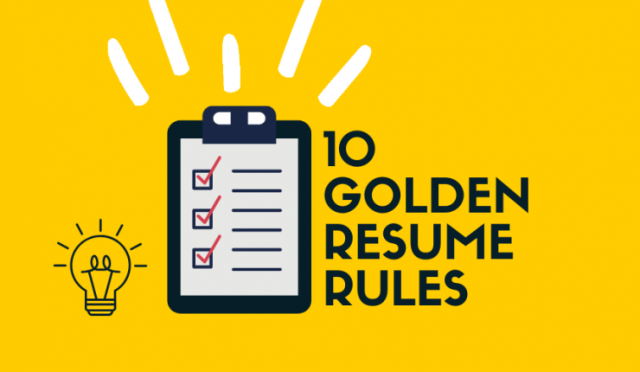
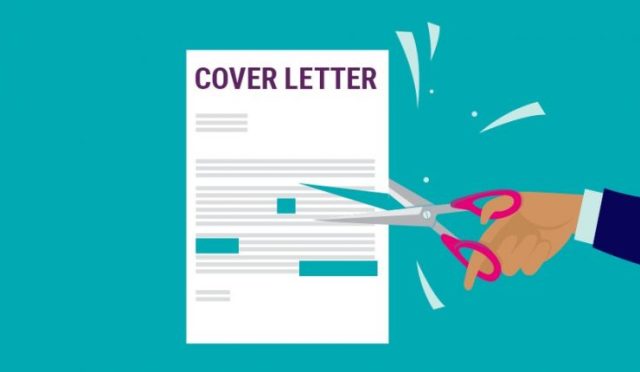
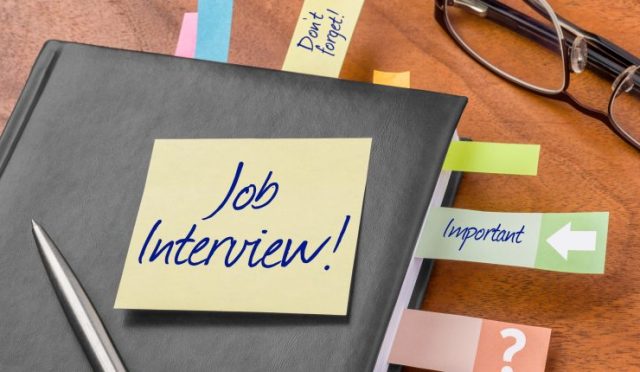

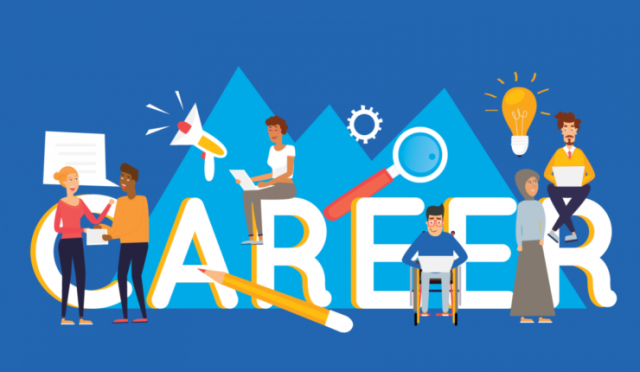
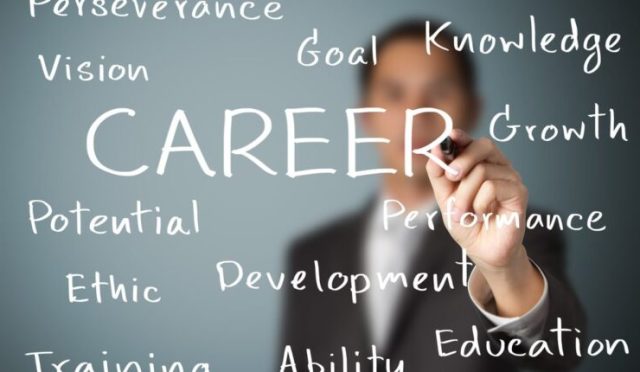

Yorumlar (2)